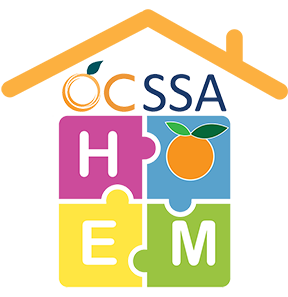Children everywhere, including children in out-of-home care, require food, shelter, medical care, education, and safety. Additionally, children require support, encouragement, reassurance, structure, security, and love.
Understandably, many children in out-of-home care may be frightened and confused at the sudden separation from their parents; some may be angry; and others may think they are being sent to foster homes as a punishment for something they might have done. Even babies may be fretful and irritable initially.
Fortunately, such concerns tend to gradually lessen over time as children in foster care are provided with the safety, structure, security, basic needs, and nurturing all children require. At times, however, it may be necessary to provide some children with additional services, such as counseling, tutoring, specialized medical care, or behavioral coaching, which may be provided by the Agency.



